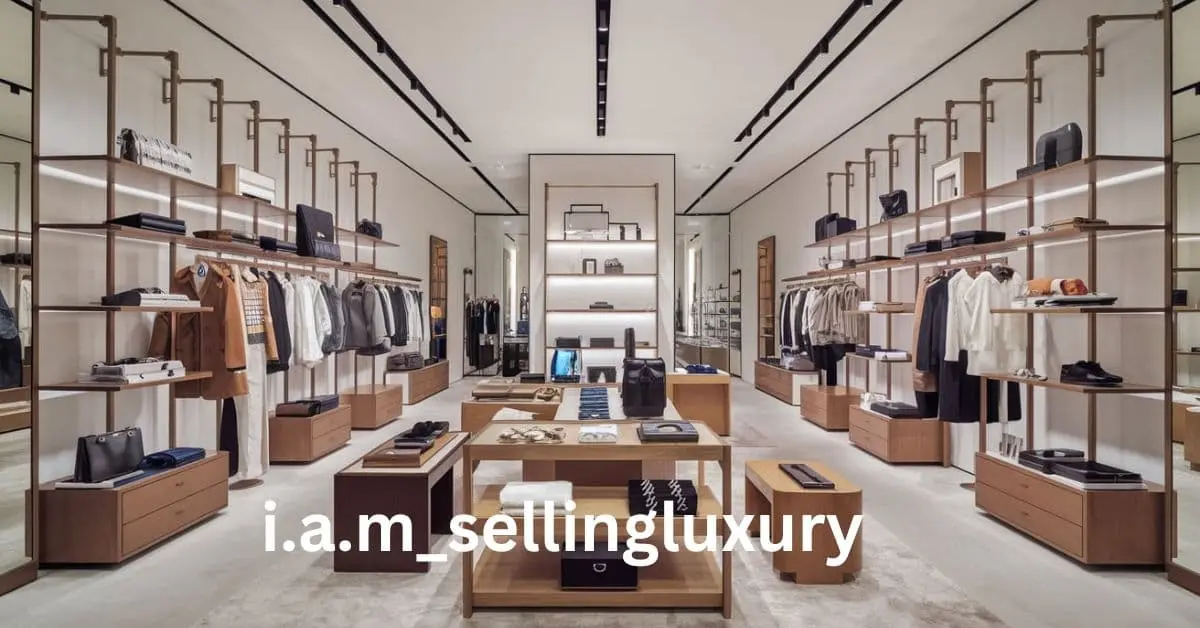i.a.m_sellingluxury: Marketing High-End Products & Experiences
In the world of luxury sales and marketing, standing out from the crowd is essential. Enter i.a.m_sellingluxury, a concept that’s revolutionizing how high-end products and experiences are presented to discerning clientele. This article delves into the intricacies of luxury sales, exploring how i.a.m_sellingluxury is changing the game for brands and marketers alike.
What is i.a.m_sellingluxury?
i.a.m_sellingluxury is more than just a catchy phrase; it’s a mindset and a comprehensive approach to luxury sales. The acronym “i.a.m” stands for:
- Innovative
- Authentic
- Memorable
These three pillars form the foundation of the i.a.m_sellingluxury philosophy, guiding professionals in creating unparalleled experiences for their high-end customers.
The Evolution of Luxury Sales
Luxury sales have come a long way from the days of exclusive boutiques and word-of-mouth referrals. Today, i.a.m_sellingluxury embraces digital platforms and experiential marketing to reach a global audience of affluent consumers. This evolution reflects the changing demographics and preferences of luxury buyers, who now seek not just products, but stories and experiences.
Key Principles of i.a.m_sellingluxury
To truly understand and implement the i.a.m_sellingluxury approach, it’s crucial to grasp its core principles:
- Exclusivity: Creating a sense of rarity and uniqueness
- Personalization: Tailoring experiences to individual preferences
- Storytelling: Crafting compelling narratives around products and brands
- Quality: Maintaining uncompromising standards in every aspect
- Innovation: Constantly pushing boundaries and setting trends
Exclusivity in i.a.m_sellingluxury
Exclusivity is the cornerstone of luxury sales. i.a.m_sellingluxury takes this concept further by:
- Offering limited editions and bespoke services
- Creating invitation-only events and experiences
- Utilizing waitlists and pre-order systems to build anticipation
By mastering the art of exclusivity, brands employing the i.a.m_sellingluxury approach can generate buzz and desire among their target audience.
The Power of Personalization
In the realm of i.a.m_sellingluxury, one-size-fits-all is a foreign concept. Personalization is key to creating memorable experiences:
- Customized product recommendations based on client preferences
- Tailored communication strategies for different customer segments
- Exclusive previews and first access for loyal clients
By embracing personalization, luxury brands can foster deeper connections with their clientele and increase customer lifetime value.
Implementing i.a.m_sellingluxury in Your Marketing Strategy
Adopting the i.a.m_sellingluxury approach requires a shift in mindset and tactics. Here are some ways to incorporate this philosophy into your luxury marketing efforts:
- Develop a strong brand identity: Your brand should exude luxury and exclusivity in every touchpoint.
- Leverage digital platforms: Use social media and online channels to showcase your products and tell your brand story.
- Create immersive experiences: Organize events and pop-ups that allow customers to engage with your brand in unique ways.
- Collaborate with influencers: Partner with high-profile individuals who align with your brand values.
- Invest in quality content: Produce stunning visuals and compelling narratives that resonate with your target audience.
The Role of Social Media in i.a.m_sellingluxury
Social media platforms play a crucial role in modern luxury marketing. i.a.m_sellingluxury leverages these channels to:
- Showcase products in aspirational settings
- Share behind-the-scenes glimpses of craftsmanship and design
- Engage with customers and build a community around the brand
Platforms like Instagram and Pinterest are particularly effective for luxury brands due to their visual nature and affluent user base.
The Psychology Behind i.a.m_sellingluxury
Understanding the mindset of luxury consumers is crucial for success in i.a.m_sellingluxury. Key psychological factors include:
- Status seeking: The desire to showcase wealth and success
- Self-reward: Purchasing luxury items as a form of personal indulgence
- Uniqueness: The need to stand out and express individuality
- Quality assurance: The belief that higher prices equate to superior quality
By tapping into these psychological drivers, brands can create marketing messages that resonate deeply with their target audience.
Building Emotional Connections
i.a.m_sellingluxury is not just about selling products; it’s about creating emotional connections. Luxury brands can achieve this by:
- Telling authentic stories about their heritage and craftsmanship
- Supporting causes that align with their values and those of their customers
- Creating a sense of belonging to an exclusive club or community
These emotional connections foster brand loyalty and encourage repeat purchases.
The Future of i.a.m_sellingluxury
As the luxury market continues to evolve, so too will the i.a.m_sellingluxury approach. Some trends to watch include:
- Sustainability: Eco-friendly luxury products and experiences
- Virtual and augmented reality: Immersive digital shopping experiences
- Blockchain and NFTs: Verifying authenticity and ownership of luxury goods
- Experiential luxury: Shifting focus from products to unique experiences
- Inclusivity: Expanding the definition of luxury to be more diverse and accessible
Embracing Technology in i.a.m_sellingluxury
Technology is playing an increasingly important role in luxury sales. i.a.m_sellingluxury practitioners are leveraging:
- AI-powered personal shopping assistants
- 3D printing for customized luxury items
- Virtual try-on experiences for jewelry and fashion
- Blockchain for supply chain transparency and authenticity verification
By staying at the forefront of technological advancements, luxury brands can offer innovative experiences that set them apart from competitors.
Challenges in i.a.m_sellingluxury
While the i.a.m_sellingluxury approach offers numerous benefits, it also comes with its own set of challenges:
- Maintaining exclusivity in the digital age: Balancing reach with scarcity
- Adapting to changing consumer values: Addressing sustainability and ethical concerns
- Competing with the experience economy: Offering more than just products
- Navigating global markets: Tailoring luxury experiences to different cultures
- Protecting brand integrity: Combating counterfeits and unauthorized resellers
Overcoming these challenges requires constant innovation and a deep understanding of the luxury market landscape.
Strategies for Overcoming i.a.m_sellingluxury Challenges
To address the challenges faced in i.a.m_sellingluxury, brands can:
- Invest in advanced authentication technologies
- Develop sustainable and ethical luxury offerings
- Create multi-channel experiences that blend digital and physical touchpoints
- Conduct thorough market research to understand local preferences
- Build strong relationships with authorized retailers and distributors
By proactively addressing these challenges, luxury brands can strengthen their position in the market and continue to thrive.
Conclusion
i.a.m_sellingluxury’ approach, which focuses on innovation, authenticity, and creating memorable experiences, is key to success in the evolving luxury market. By staying true to the core values of exclusivity, quality, and personalization, while adapting to new technologies and consumer preferences, luxury brands can remain relevant and thrive. This philosophy encourages brands to go beyond selling products and focus on crafting dreams and fulfilling aspirations, ultimately creating lifelong customer loyalty and setting new industry standards.







